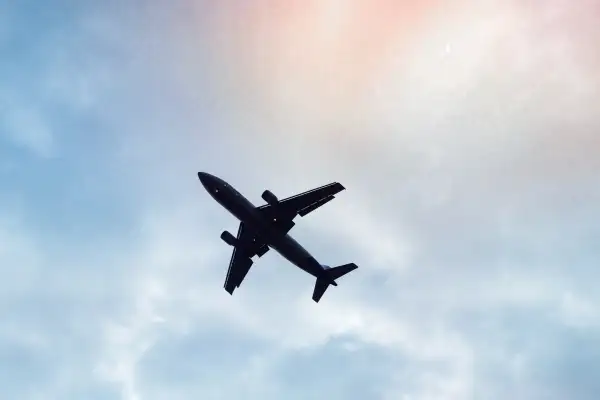Today Is Cheap Flight Day. Here's What You Need to Know About This 'Magic Date'

Cheap Flight Day, which happens every year around this time, sounds awesome and is indeed worth noting if you love travel deals.
But it's not what it sounds like.
Basically, Cheap Flight Day—which is generally said to be August 23, but sometimes August 21 or 22—is the day when airfares retreat across the board from their peak season summer pricing. In other words, for the most part, if you fly on or after August 23, you'll pay less compared to traveling on the same route in late June, July, or early August.
Flight prices are typically 11% to 20% less after Cheap Flight Day than they are during the middle of summer, though the difference in pricing varies greatly depending on destination and timing.
Cheap Flight Day, then, is more like a transition day, reflective of larger forces of supply and demand that impact flight prices year-round. The day unofficially marks "the start of the air travel industry’s fall season: When children go back to school, demand takes a dive which prompts the airlines to lower their fares," Rick Seaney, the CEO of the flight-search and comparison site FareCompare.com, wrote earlier this summer.
Seaney refers to Cheap Flight Day as the "magic date" when airfares begin to fall.
So how do you use this information to actually get a cheap flight?
Prices don't necessarily drop to their lowest levels of the year with the arrival of Cheap Flight Day. “Typically if you want to fly into Europe – the best month in my opinion is November,” Seaney explained to ABC News. Departures are cheaper then compared to late August or September, Seaney said, "and the weather is much cooler.”
Data from Cheapflights.com also makes the case that autumn is the best time of year for cheap airfare. "Plan to travel between late September and early November," Cheapflights.com's Amanda Festa explained. "The dates with the lowest fares of the year, on average, tend to fall in that window. This is important to know now as it’s prime booking time for getting deals in that value window."
What does she mean about a "prime booking time"? When should a traveler book to get the cheapest flight prices? That's a different discussion, and it's one that can also be confusing.
There are studies showing that Tuesday, Thursday, Sunday or some other day are best for finding the cheapest airfare. Others seem to indicate that you should book airline tickets exactly 49 days in advance, or 54 days in advance, or at some other specific moment.
The truth is that these guidelines are just guidelines. While they may help you find the absolute lowest airfare, there's a good possibility that another day will wind up in retrospect being the one when airlines had an amazing sale featuring their cheapest prices for your route and dates. As I've written before:
Flight prices change far too often, far too quickly, for far too many reasons for any single rule to hold true across the board. These and other guidelines are nice, but they're riddled with too many exceptions for them to be truly useful.
The best advice for finding cheap airfare, then, is to consult a site like Kayak or Yapta to get a sense of the range of pricing you're likely to encounter for your routes and dates. Both sites use historical airfare data to enlighten travelers, and they can even make predictions as to whether prices are likely to drop or fall if you wait to book.
Sign up to get messages about sales from your preferred airline(s) and other helpful resources (Money and Travel & Leisure cover flight deals regularly), and be ready to pounce when a promotion pops up with outstanding deals. You should be proactive and search for airfare on your own as well.
Generally speaking, travelers must book ahead—but not too far ahead—to get the lowest prices. That typically means buying tickets between one month to four months before departure. If you're flexible with departure dates, you're OK with midweek departures, and you're traveling during an off-peak period, you can probably find good prices even three or four weeks in advance.
On the other hand, if you have specific departure dates and times, you need to fly on a Friday or Sunday, and/or your trip is bound to a hot destination in a peak travel period like Thanksgiving, Christmas, or Spring Break, you'll pay through the nose if you wait too long. In any of these situations, it's wise to book tickets well in advance—four months ahead, or perhaps even earlier.
